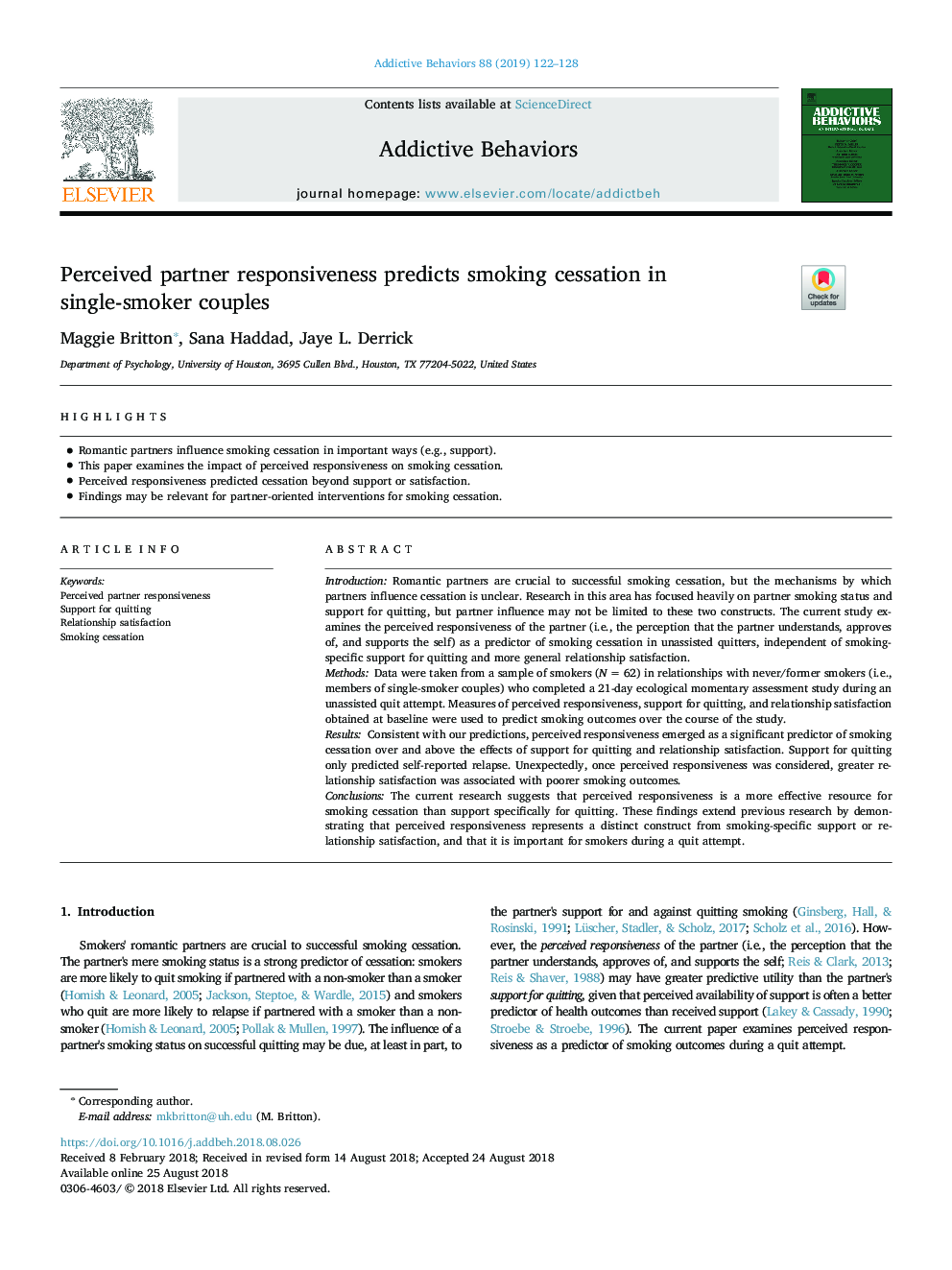| Article ID | Journal | Published Year | Pages | File Type |
|---|---|---|---|---|
| 9952915 | Addictive Behaviors | 2019 | 7 Pages |
Abstract
The current research suggests that perceived responsiveness is a more effective resource for smoking cessation than support specifically for quitting. These findings extend previous research by demonstrating that perceived responsiveness represents a distinct construct from smoking-specific support or relationship satisfaction, and that it is important for smokers during a quit attempt.
Related Topics
Life Sciences
Neuroscience
Behavioral Neuroscience
Authors
Maggie Britton, Sana Haddad, Jaye L. Derrick,
